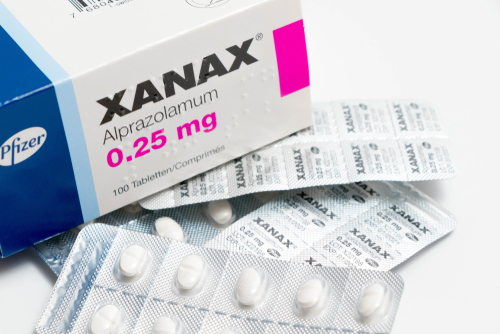Xanax is a brand name for alprazolam. This is a drug in the benzodiazepine family. It is a nervous system depressant, and doctors mostly use it to treat anxiety and panic disorders.
Xanax is a powerful drug. Because of its strong effects, many people who need to take it often have the same questions: How long does it take to kick in? What are the effects?
It’s always best to be better informed about the prescriptions you take. To safeguard your health, learn about the effects of Xanax and what to do if you’re experiencing Xanax addiction or abuse.
How Long Does It Take For Xanax to Kick In?
Xanax’s effects kick in at different rates for everyone, but in general, it’s considered fast-acting. Unless you have a tolerance to the drug or take the wrong dose, it usually kicks in within 15 minutes to an hour.
The body absorbs Xanax very quickly. It enters the bloodstream and is taken up by the brain just a few minutes after you take it. In fact, most users should feel 90% of the peak effect within the first hour.
Other Factors
If it takes longer than an hour to feel the effects of Xanax, that often suggests a problem. Of course, it’s very likely that you simply haven’t noticed. If the drug really isn’t working, there are two main possibilities. In both cases, this could mean a drug abuse problem:
- You may have taken an incorrect dose. Doctors prescribe the right effective doses, and not taking the correct dose could cause problems.
- You may have developed a tolerance to the drug. This could be from long-term abuse of Xanax or of similar drugs that affect the same parts of the brain. This could be other benzodiazepines or even drugs like alcohol.
There is also an extended-release version of the drug. With these pills, the effects may take more time to kick in, but will last longer.
What Does Xanax Feel Like?
Xanax is a depressant. It slows down the nervous system and relaxes you. Physically, it slows down your heart rate and breathing and lowers your blood pressure.
Medically
When taken in the right dose prescribed by a doctor, Xanax relieves anxiety and panic. Basically, it calms you down. Because it also physically relaxes you, it can treat seizures and insomnia as well. People with a medical need for the drug feel “normal” again when they take it.
Recreationally
Unlike medical use, people abuse Xanax recreationally to get a high. When people abuse Xanax, the effects are stronger. The high of Xanax abuse is usually described as euphoria. You feel very relaxed and don’t have any anxiety or worry. The feelings of calm can also cause drowsiness and sleep.
Abuse also increases the risk of side effects. Xanax side effects include:
- Headache
- Difficulty concentrating
- Nausea
- Memory problems
Can Xanax Be Addictive?
Even at low medical doses, the body can develop a physical dependence on Xanax. The risk is even higher if you take too much or abuse the drug. Eventually, stopping the drug results in withdrawal symptoms. These include increased anxiety, tremors and trouble sleeping.
Many people begin to feel they can’t cope if they don’t take Xanax. They may not even feel any effects from the drug. They just have to take it to avoid withdrawals.
Physical dependence is not necessary for abuse, though. People also take the drug for the high. Taking Xanax outside of a medical prescription can be dangerous. It can cause serious side effects and even overdose, especially when mixed with other drugs or alcohol.
Do You Need Treatment?
Xanax addiction and abuse can be frustrating. You feel like you can’t stop taking the drug without feeling overwhelming anxiety. But your dependence on the drug also causes stress.
If you or a loved one is having problems quitting Xanax, don’t be afraid to get help. Trained mental health professionals can help you design a personalized plan that features both the medical and psychological treatment necessary to break the chains of addiction.
Not sure where to get help? Browse through our directory to find a quality treatment center near you.
Sources:
- Benzodiazepine dependence
- Clinical pharmacokinetics of alprazolam. Therapeutic implications.
- The Top 300 Drugs of 2020
Updated on January 26, 2022


